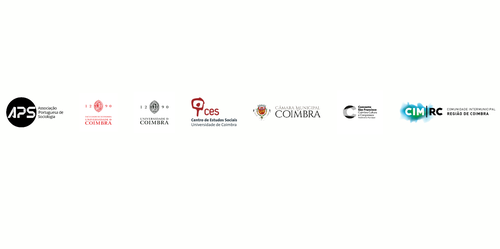Call for papers | Civil Society, Alternative Economies, Volunteering
Coordinators:
Cristina Parente (ISUP - FLUP)
Raquel Rego (ICS-Lisboa)
Sílvia Ferreira (CES-FEUC)
Contemporary societies have been confronted with a succession of global crises, from the financial crisis of 2007-8 to the COVID19 pandemic, which have greatly increased the degree of uncertainty in which we live. Rising poverty and social inequality, climate change, the rise of the extreme right and populism, the destruction and suffering caused by war, appear to echo the Europe of the mid-20th century. These crises recall long-standing concerns that Karl Polanyi expressed in The Great Transformation in 1944. Polanyi referred to the movements of self-protection of societies against the destructive consequences of liberal capitalism, whether in the progressive forms of state and civil society intervention or in the regressive phenomena of fascism and authoritarianism.
In liberal democracies, individuals are mobilised in a collective and in a more or less organised way, physically and through social networks, responding to needs or aspirations for more social justice and non-discrimination, or just for more quality of life, with guaranteed health, safety and care services, in defence of common interests, minorities and local communities, strengthening ties of belonging and solidarity, often with a component of aid to vulnerable populations. In the final decades of the 21st century, a social and academic field is being structured and institutionalized, generically described as being situated between the State and the market economy and which has, as one of its main characteristics, the fluidity of its borders. This fluidity is well expressed in the plurality of designations of this field - social economy, solidarity economy, third sector, civil society - and of the collective actors involved: non-governmental organisations, non-for-profit organisations, social enterprises, social entrepreneurs, collectives, groups and informal or voluntary initiatives.
In this context of uncertainty, it becomes more important than ever to highlight what is the contribution of sociology with regard to knowledge about organisations, the practices and discourses that populate this field. Sociological approaches are characterised by their attention to contexts, practices and representations, as well as to relations and interactions. It asks questions about the contexts from which these forms of collective organisation emerge, evolve and upon which they act, and about how they relate to other organisations and institutions in their field or in other fields, what kind of social, economic and political relations they establish and mediate. In so doing, these sociological approaches are often placed in opposition to other approaches of an exclusively individualist, utilitarian and mercantilist nature which promote the disembeddedness of the market from society and the domination of society by the market logic in the context of neoliberal capitalism.
In this sense, the Thematic Section Civil Society, Alternative Economies, Volunteering (ST SCEAV) calls for contributions on the following thematic lines:
- Social, solidarity and popular economies: practices and institutional contexts;
- Social enterprises: practices, discourses and organizational forms;
- Third sector, welfare state and local and national public policies;
- Social, solidarity and collective entrepreneurship;
- Social innovation and socio-economic and environmental impact;
- Humanitarian organizations and new and old forms of philanthropy;
- The economy of proximity, collectives and the management of the commons;
- Activism, new social media and responsible production/consumption;
- Civil society, participation and democracy;
- Cooperativism and associativism;
- Social capital, trust and participation;
- The digitalization in social and solidarity economy;
- Employment, Work and Volunteering.
The ST SCEAV makes a call for submissions from academia, but also from the professional field, covering these thematic lines or other related studies and projects. The proposals may have an empirical or theoretical basis, in any case they should be formulated according to a conventional structure, giving an account of the theoretical debate in which they fall, the objectives they pursue, the methodology used, results and discussion and also conclusions.
The Thematic Section's coordination will select the best communications to be proposed for publication in the journal SOCIOLOGIA ON LINE.
PDF Version
